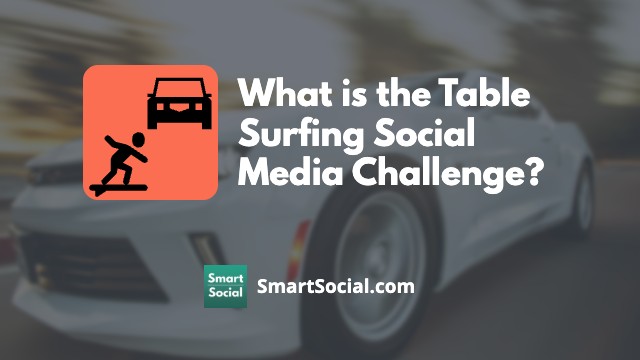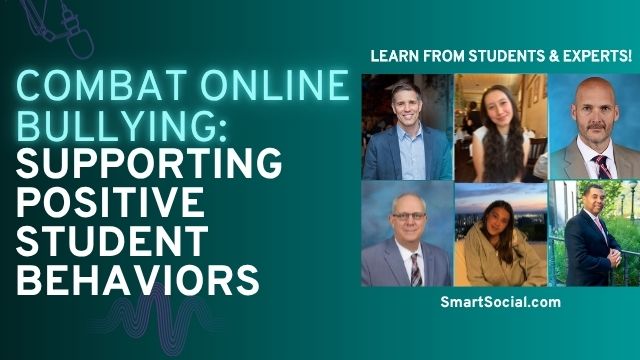Screen Time Tips for Better Sleep
Green Zone App
(Click here to learn more)
Dangerous Social media challenge
(Click here to learn more)
Red Zone App
(Click here to learn more)
Gray Zone App
(Click here to learn more)

Screens and phones tend to be our constant companions. These devices and apps keep us connected and make everything more convenient, but they can also make it hard for us to unplug. For teens, it can be doubly problematic. Studies have found an underlying biology that makes them prone to staying up late. As a result, teens might not be getting the sleep they need for optimal alertness and concentration during the day.
Studies show the quality and consistency of an adolescent’s sleep is just as important to their overall health as the amount (Source: American Academy of Pediatrics). In this guide, we will dive into the ways screens are affecting teens' sleep and ways to combat late-night screen time.
Educators and parents: Guide your students' reflection and discussion with this student worksheet. (Log in to your Google account and select File-->Make a Copy)
Why do students want to be on screens late at night?

- They don’t want to miss a post or comment on social media
- Teens claim evening screen time can help them relax and unwind before bed
- They are in the middle of a show or trying to beat a level on a game
- Screens, particularly social media, stimulate the release of dopamine resulting in teens wanting to continuously check their phones for another release
Parent & Educator Training Video
Screen Time and Sleep in the News

Digital screens emit sleep-disrupting blue light, feed us instant and addictive entertainment and encourage stress-inducing “doom-scrolling” (which has, at this point, become a national pastime). - Forbes

Research in the Journal of Adolescent Health demonstrates that adolescents at age 15 who used screens to communicate with friends or play video games in the hour before bed took 30 minutes longer to fall asleep than if they had refrained from interactive screen time. …For each hour during the day that kids spent playing video games beyond their usual amount, their sleep was delayed by about 10 minutes. - News Medical
Why should parents & educators care?

- Checking your phone, or engaging in screen time, stimulates your brain in a way that keeps your mind more active and awake long after the screen is off
- The blue light released from a phone mimics daylight and can affect the internal body clock and may trigger your teen’s body to release less melatonin at night (Source: Cleveland Clinic)
- Screen time before bed can lead to less deep sleep each night making us feel tired, easily lose concentration, and have difficulties retaining information (Source: Rise)
What can parents & educators do?
- Establish a relaxing bedtime routine by incorporating healthy sleep habits and activities that don’t involve blue light emitting devices
- Set electronic devices to “nighttime mode.” This setting reduces blue light emissions and decreases the display’s brightness setting
- Remove televisions and gaming consoles from your teen's room and have a place outside of their bedroom for them to place their phone at night
Alternatives to unplugging all the screens in your house after dark

Wear amber-colored glasses before bed
With orange or amber-tinted lenses, they’re designed to protect your eyes from the blue-wavelength light that decreases melatonin and interferes with sleep. So far, the research on these inexpensive glasses looks promising. According to Reuters, a Swiss study observed that “teen boys who used computers and other digital devices while wearing (blue-blocker) glasses every evening for a week felt markedly more relaxed and sleepy at bedtime.”
Use warm-light light bulbs
GE has ventured beyond electronic screens to design a product for use anywhere in the house. Their Align LED technology includes specially designed “PM Bulbs” designed to mimic natural candlelight without disrupting sleep circadian rhythm. The bulbs also feature an AM version to promote wakefulness in the morning.
The GE Align PM Lighting Bulb retails for $19.99 at Amazon
Experiment with other light-filtering products
In addition to glasses and light bulbs, the website LowBlueLights also features novel light-filtering products for nighttime use such as “low-blue” flashlights, acrylic, press-on screen filters, and more.
Use Night Shift features on your phone and tablets
With Night Shift, Apple uses your location and determines the right time to automatically shift your iPhone or iPad screen from blue to a warmer, yellow tone. This app could vastly improve the sleep for those who use their phones in bed.
Limiting screen time at night is great in theory but can be hard to enforce

If you like to cap off your own evening by reading a good e-book in bed, don’t fool yourself that it’s any better than your son or daughter watching YouTube late at night. Harvard University neuroscientist Anne-Marie Chang noted when she and her colleagues examined the effects of reading on a light-emitting device versus a printed book, people using devices took longer to fall asleep and had less REM sleep.
Best Blue Light Glasses on Amazon
- Josh from SmartSocial uses these glasses every night
- Affordable two pack
- Glasses with carrying case
- Trendy and affordable two pack
- Metal frame glasses
Additional Resources for Parents, Students, & Educators
The Impact of Screen Time on Motivation
Does Your Teen Have a Burner Phone? | What Parents Need to Know About Secret Cell Phones
Best Screen Time Apps for Students
10 Screen Time Management Tips to Prevent Addiction
How Parents Can Monitor Kids Online (Without Being Intrusive)
Conclusion
Screens have many positive uses for teens and adults alike. Excessive use especially in the evenings can significantly impact our sleep. It is important to establish screen free nighttime routines and set boundaries with your family to ensure everyone in the house is getting the most out of their sleep.
Protect your family and enter for a chance to win cool prizes
Become a member or log in to learn more on this topic
Protect your family and enter for a chance to win cool prizes

., start learning from this page to earn points!*
Hello, I'm Josh, the founder of SmartSocial.com.
Don't leave this page until you fill out our feedback form that will appear after you learn from the resources...
Become a Very Informed Parent (VIP) to get our social media suggestions in your email every Tuesday & Thursday.



Hello, I'm Josh, the founder of SmartSocial.com. Protect your family by taking my 1 minute quiz
This quiz will help you understand how safe your family is


Schools & Districts: Partner with us to protect your community online
Our remote presentations (and website) teach over a million parents and students each year how to be safe so they can shine online. We teach students how their accounts can be used to create a portfolio of positive accomplishments that impress colleges and employers.


Join Our Smart Social Podcast
each week on iTunes
With over 500 episodes, Josh Ochs interviews psychologists, therapists, counselors, teachers, and parents while showing you how to navigate social media to someday shine online.
Listen on:



.jpg)
.jpg)
.jpg)


